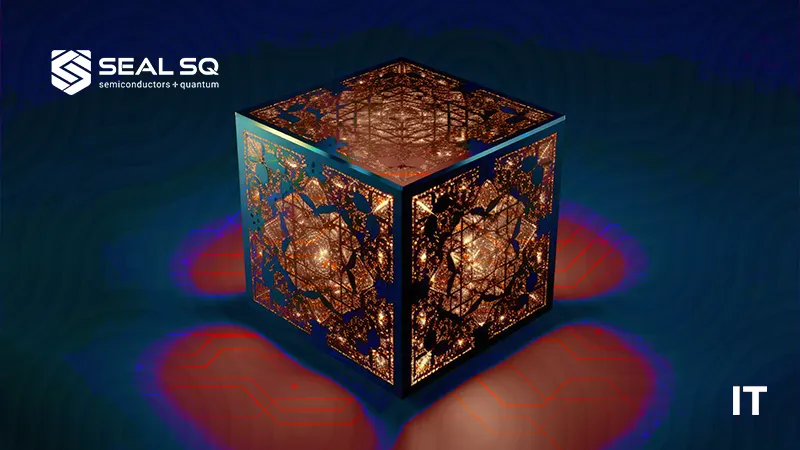SEALSQ Corp, a company that focuses on developing and selling Semiconductors, PKI and Post-Quantum technology hardware and software products, is pioneering the shift to quantum-resistant cybersecurity with its newly developed post-quantum chip, QS7001. As the digital age progresses, the need for robust, quantum-resilient security becomes more pressing than ever. SEALSQ’s groundbreaking platform represents a vital advancement in securing critical data and infrastructure against the imminent threats posed by quantum computing.
SEALSQ’s QS7001: A Game-Changer in Post-Quantum Cybersecurity
In response to the growing quantum threat, SEALSQ has introduced the QS7001, a cutting-edge RISC-V secure hardware platform specifically designed for IoT security in the post-quantum era. The platform incorporates NIST’s recommended quantum-resistant algorithms, Kyber and Dilithium, to ensure robust protection against quantum-enabled breaches. This innovation positions SEALSQ at the forefront of the transition to post-quantum security solutions.
“The QS7001 represents a transformative leap in cybersecurity,” said Jean Pierre Enguent, CTO at SEALSQ. “As quantum computing capabilities advance, the vulnerabilities of current encryption methods become increasingly apparent. With our QS7001, we are set to provide industries and governments with the tools they need to safeguard their data and devices against the looming quantum threat.”
The Quantum Computing Threat and Its Impact on Cybersecurity
Quantum computing is set to revolutionize multiple industries, but it also poses significant risks to current encryption methods. Traditional cryptographic algorithms like RSA and ECC, which have been the bedrock of secure communications, are increasingly vulnerable to attacks by quantum-enabled adversaries. The immense processing power of quantum computers, which can solve complex mathematical problems exponentially faster than classical computers, threatens to render existing cryptography obsolete.
The urgency of addressing this threat was underscored by the recent release of three quantum-resistant encryption algorithms by the U.S. National Institute of Standards and Technology (NIST). These algorithms, developed through NIST’s rigorous post-quantum cryptography standardization process, are a critical step toward securing sensitive data from future quantum attacks.
SOURCE: GlobeNewswire

































